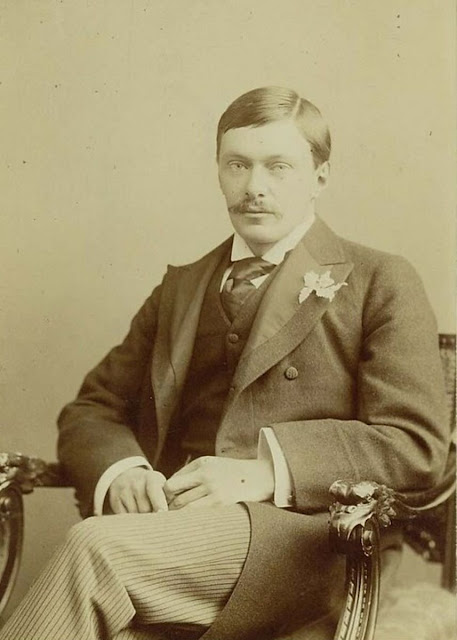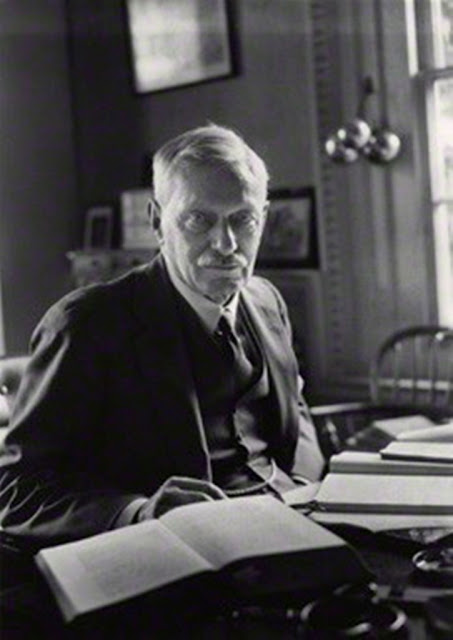I had been for ten years an inhabitant of Bagnell Terrace, and, like all those who have been so fortunate as to secure a footing there, was convinced that for amenity, convenience, and tranquillity it is unrivalled in the length and breadth of London. The houses are small; we could, none of us, give an evening party or a dance, but we who live in Bagnell Terrace do not desire to do anything of the kind. We do not go in for sounds of revelry at night, nor, indeed, is there much revelry during the day, for we have gone to Bagnell Terrace in order to be anchored in a quiet little backwater. There is no traffic through it, for the terrace is a cul-de-sac, closed at the far end by a high brick wall, along which, on summer nights, cats trip lightly on visits to their friends. Even the cats of Bagnell Terrace have caught something of its discretion and tranquillity, for they do not hail each other with long-drawn yells of mortal agony like their cousins in less well-conducted places, but sit and have quiet little parties like the owners of the houses in which they condescend to be lodged and boarded.
But, though I was more content to be in Bagnell Terrace than anywhere else, I had not got, and was beginning to be afraid I never should get, the particular house which I coveted above all others. This was at the top end of the terrace adjoining the wall that closed it, and in one respect it was unlike the other houses, which so much resemble each other. The others have little square gardens in front of them, where we have our bulbs abloom in the spring, when they present a very gay appearance, but the gardens are too small, and London too sunless to allow of any very effective horticulture. The house, however, to which I had so long turned envious eyes, had no garden in front of it; instead, the space had been used for the erection of a big, square room (for a small garden will make a very well-sized room) connected with the house by a covered passage. Rooms in Bagnell Terrace, though sunny and cheerful, are not large, and just one big room, so it occurred to me, would give the final touch of perfection to those delightful little residences.
Now, the inhabitants of this desirable abode were something of a mystery to our neighbourly little circle, though we knew that a man lived there (for he was occasionally seen leaving or entering his house), he was personally unknown to us. A curious point was that though we had all (though rarely) encountered him on the pavements, there was a considerable discrepancy in the impression he had made on us. He certainly walked briskly, as if the vigour of life was still his, but while I believed that he was a young man, Hugh Abbot, who lived in the house next his, was convinced that, in spite of his briskness, he was not only old, but very old. Hugh and I, life-long bachelor friends, often discussed him in the ramble of conversation when he had dropped in for an after-dinner pipe, or I had gone across for a game of chess. His name was not known to us, so, by reason of my desire for his house, we called him Naboth. We both agreed that there was something odd about him, something baffling and elusive.
I had been away for a couple of months one winter in Egypt; the night after my return Hugh dined with me, and after dinner I produced those trophies which the strongest-minded are unable to refrain from purchasing, when they are offered by an engaging burnoused ruffian in the Valley of the Tombs of the Kings. There were some beads (not quite so blue as they had appeared there), a scarab or two, and for the last I kept the piece of which I was really proud, namely, a small lapis-lazuli statuette, a few inches high, of a cat. It sat square and stiff on its haunches, with upright forelegs, and, in spite of the small scale, so good were the proportions and so accurate the observation of the artist, that it gave the impression of being much bigger. As it stood on Hugh's palm, it was certainly small, but if, without the sight of it, I pictured it to myself, it represented itself as far larger than it really was.




















